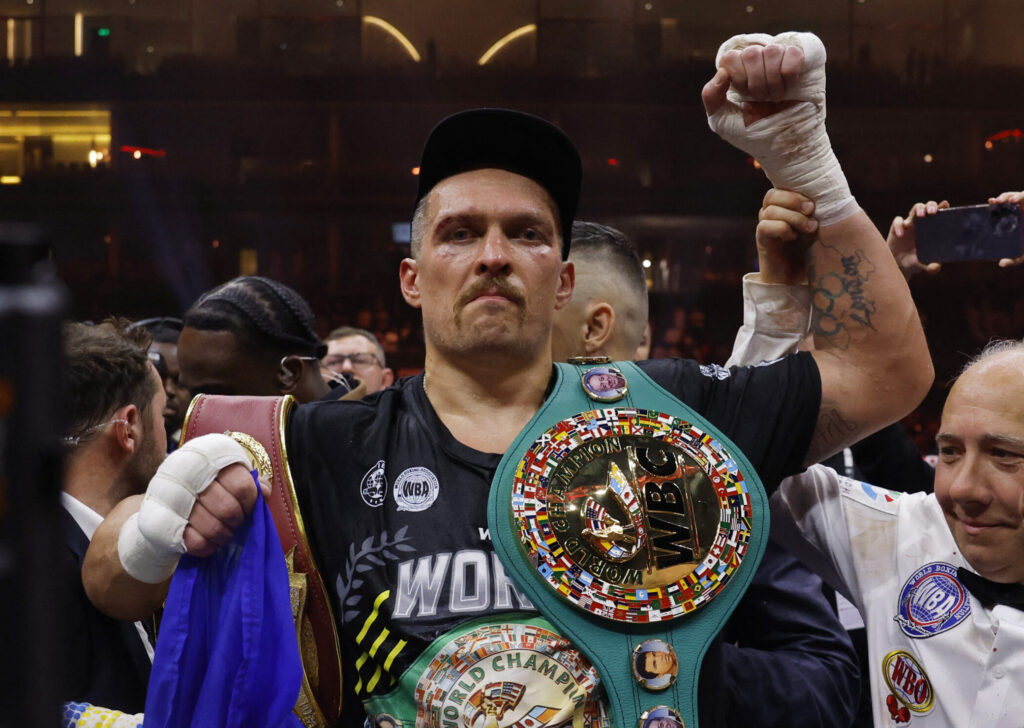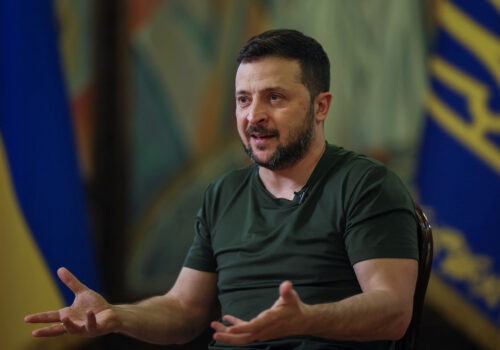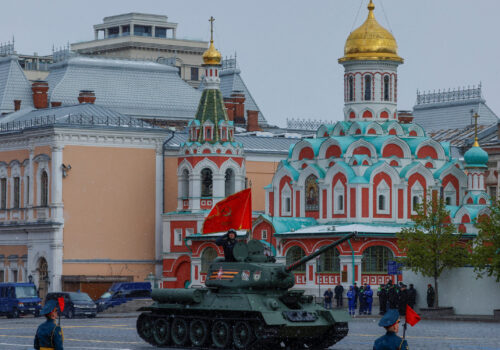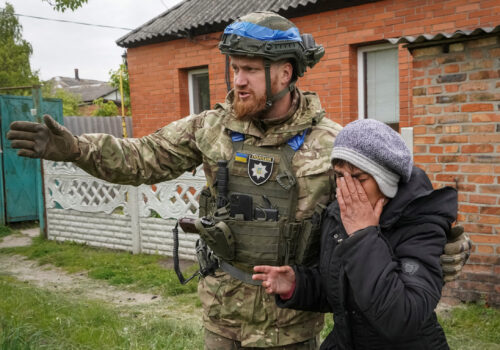Ukrainian heavyweight boxer Oleksandr Usyk’s victory over Britain’s Tyson Fury in Saudi Arabia on May 19 was historic in many ways. The fight was the first unification bout in the heavyweight division for more than twenty years, with the heavyweight title belts from all four recognized governing bodies on the line. By defeating Fury, Usyk therefore made boxing history, becoming the first undisputed heavyweight champion this century.
In fact, Usyk’s claim to a place in boxing history does not only hinge on his most recent win. The Ukrainian has now held both the undisputed heavyweight title and the undisputed cruiserweight title. Usyk first began his professional career as a cruiserweight and unified the division before moving up to heavyweight in 2019.
For the millions of Ukrainians cheering him on, Usyk’s success in Saudi Arabia was also historic in a far broader sense. Usyk is an undersized heavyweight in an era of giants who defeats much bigger opponents with a combination of skill and grit. This makes him in many ways the ideal symbol of today’s Ukraine as it defends itself against the far larger Russian army. Tyson Fury isn’t Russian, of course, but not all metaphors are perfect.
Stay updated
As the world watches the Russian invasion of Ukraine unfold, UkraineAlert delivers the best Atlantic Council expert insight and analysis on Ukraine twice a week directly to your inbox.
During the buildup to last weekend’s unification bout, Usyk repeatedly drew international attention to Ukraine and highlighted the Russian invasion of his country. At the weigh-in prior to the fight, he unfurled the flag of a Ukrainian Special Forces unit. During his ring walk, Usyk showcased Ukrainian history by donning an elaborate costume reminiscent of seventeenth century Ukrainian Cossack military leaders. In the emotionally charged aftermath of his split decision win, Usyk dedicated his victory to the Ukrainian soldiers currently defending his homeland.
Usyk’s compatriots were quick to acknowledge the significance of his boxing success for Ukraine. Retired Ukrainian heavyweight legend Wladimir Klitschko hailed the win as “an historic victory for us Ukrainians.” Meanwhile, Ukrainian President Volodymyr Zelenskyy offered his congratulations while making a thinly-veiled reference to the war with Russia. “Ukrainians hit hard! And in the end, all our opponents will be overcome,” he posted on social media.
In addition to raising awareness of Ukraine’s current plight, the fight also raised money in support of the country. Usyk accepted a seventy-thirty split of the overall purse in Fury’s favor, but the agreement also included a stipulation that the British boxer would donate more than one million US dollars to Ukrainian causes. However, this goodwill gesture was somewhat undermined by Fury’s post-fight claim that the judges had sided with Usyk because Ukraine was a country at war.
Eurasia Center events

Heavyweight boxing has often been a stage for international intrigue and political symbolism. The most famous example of this was probably the 1938 “Battle of the Century” between American heavyweight world champion Joe Louis and German boxer Max Schmeling. As Louis was Black and Schmeling was something of a poster boy for Nazi myths of Aryan superiority, the fight had strong racial and geopolitical undertones. This made it a truly global event, with over one hundred million people listening in around the world. Louis won the fight by knocking Schmeling out in the first round, leaving the Nazis embarrassed. Despite his role in Nazi propaganda, Schmeling never joined the Nazi Party and would go on to become close personal friends with Louis.
For the past two years, Usyk has used his high public profile to keep Ukraine’s fight against Russian aggression in the spotlight. During the initial stages of the full-scale invasion, he joined a local territorial defense unit in the Kyiv area. However, conversations with officials and soldiers helped convince him that he could do more for the country by defending his world heavyweight boxing title. “We have to go ahead, be strong and keep moving. This fight is very important. The people of Ukraine need to feel pride,” he commented.
In addition to regularly speaking about the Ukrainian war effort, the heavyweight champion fighter has established the Usyk Foundation, which auctions off boxing memorabilia to raise money for humanitarian aid. He is also involved in a range of other Ukrainian charitable and fundraising initiatives.
Usyk is the latest in a series of Ukrainian boxers to emerge as unofficial global ambassadors for their country. For much of the 2000s, Wladimir Klitschko and his older brother Vitali dominated the heavyweight division and introduced fight fans around the world to Ukraine at a time when the country was still relatively unknown.
Usyk clearly understands the power of his platform and intents to use it in support of a free Ukraine. His remarkable achievement in unifying the heavyweight division has garnered global headlines and has succeeded in reminding international audiences of the war currently raging in Eastern Europe. It has also provided a much-needed national morale boost to millions of his fellow Ukrainians.
Joshua Stein is a researcher with a PhD from the University of Calgary.
Further reading
The views expressed in UkraineAlert are solely those of the authors and do not necessarily reflect the views of the Atlantic Council, its staff, or its supporters.

The Eurasia Center’s mission is to enhance transatlantic cooperation in promoting stability, democratic values and prosperity in Eurasia, from Eastern Europe and Turkey in the West to the Caucasus, Russia and Central Asia in the East.
Follow us on social media
and support our work
Image: Oleksandr Usyk celebrates with the belts after winning the fight to become the undisputed heavyweight world champion. Action Images via Reuters/Andrew Couldridge




